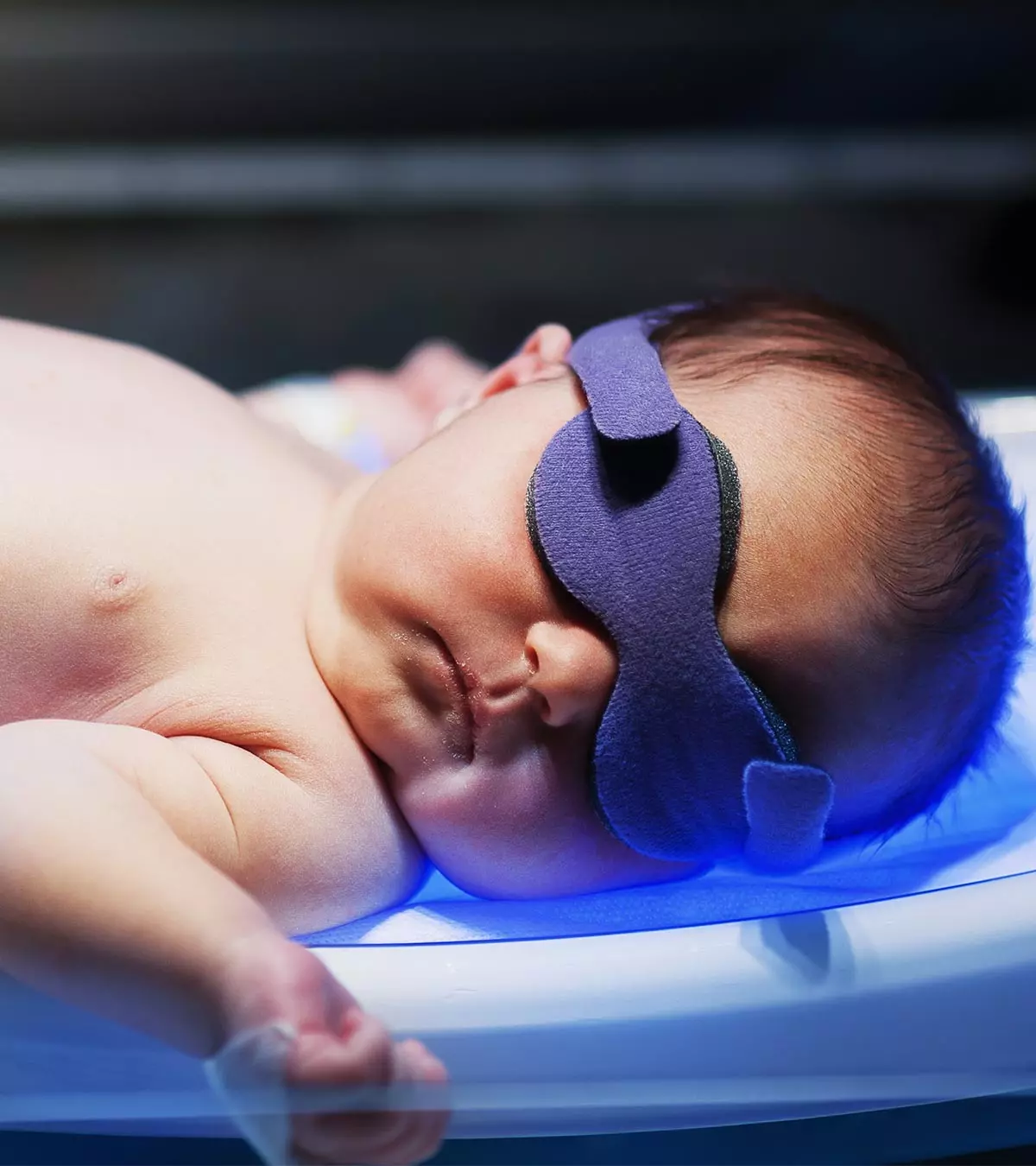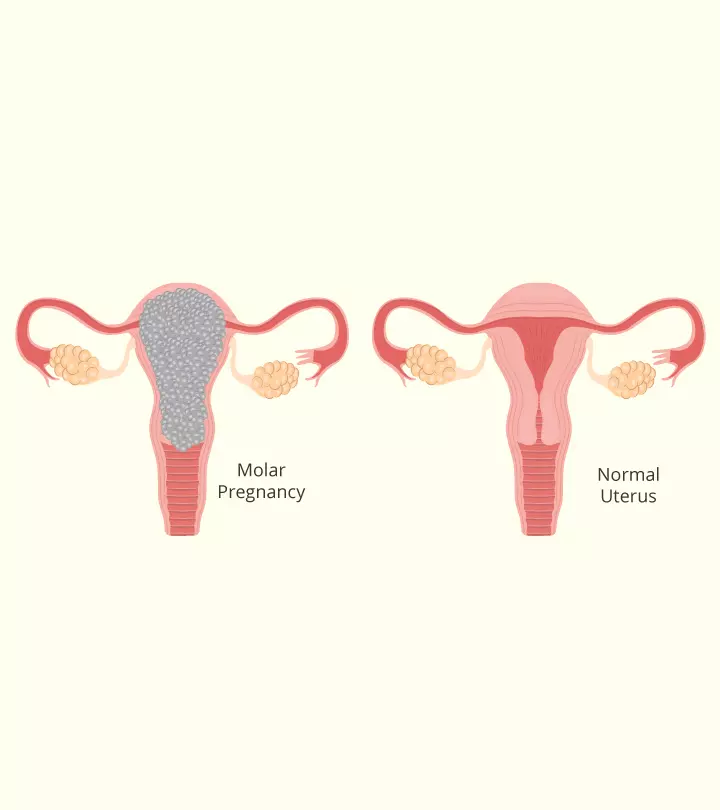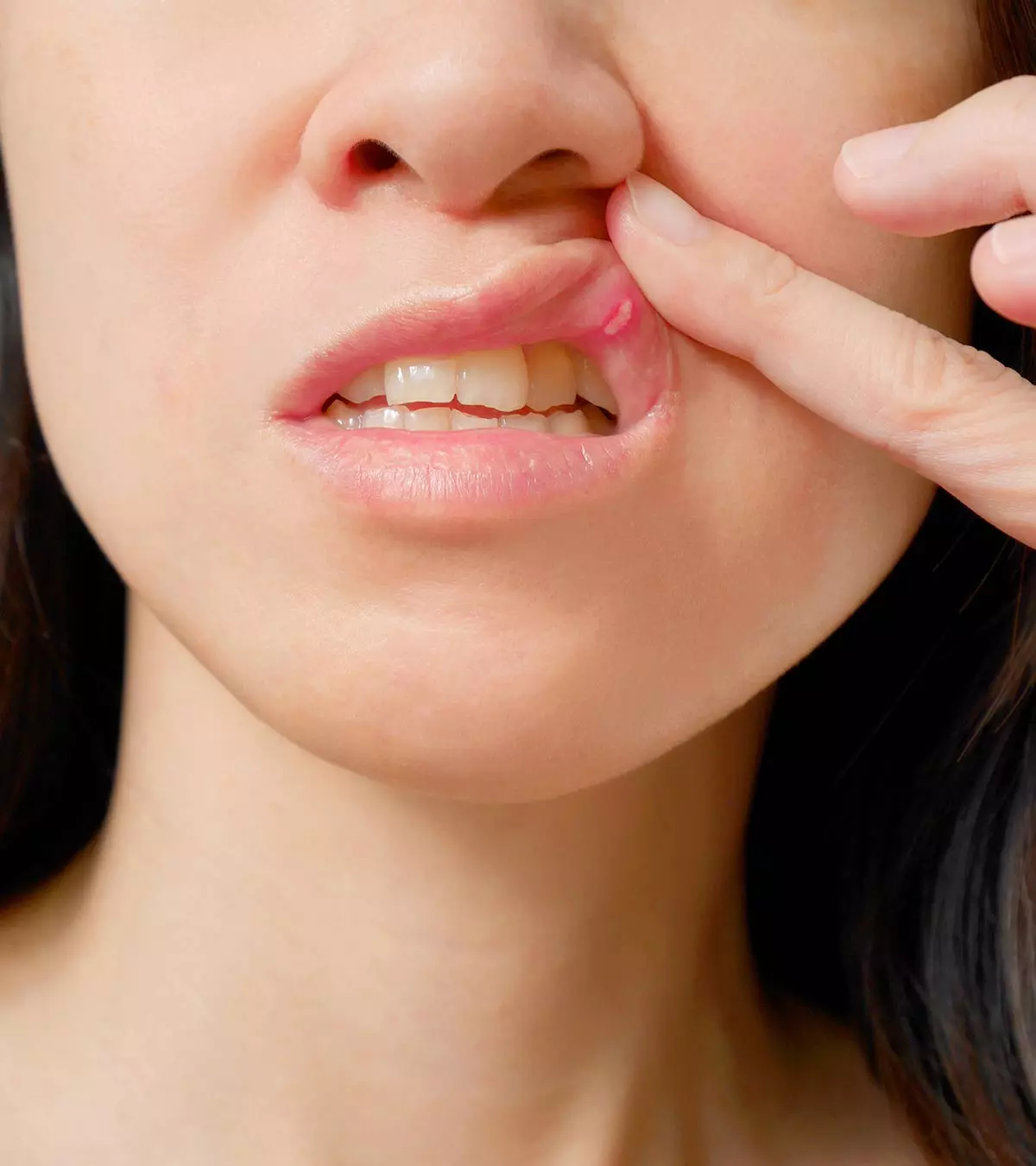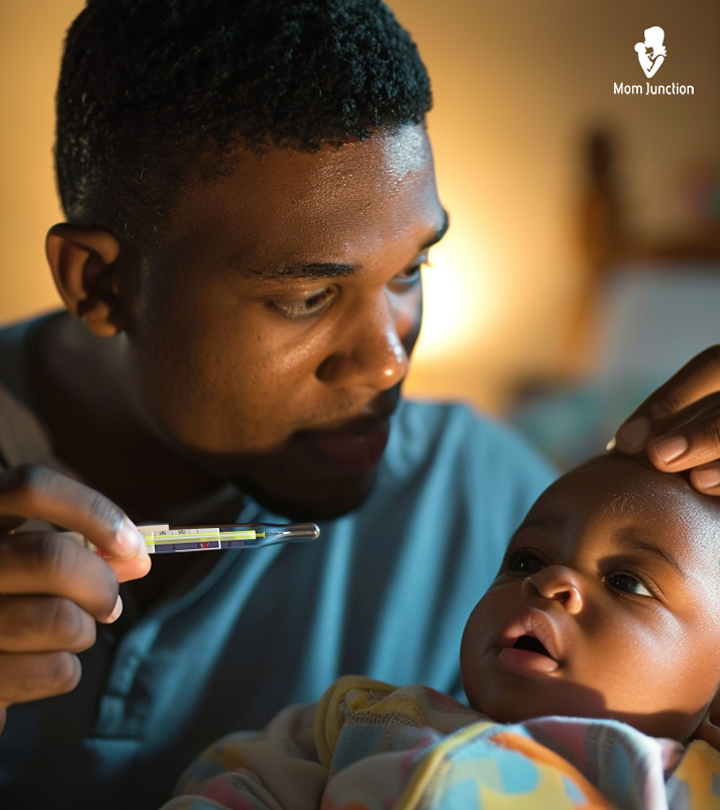
Image: ShutterStock
Chewing gum is made with a gum base, sweetening, and flavoring agents. It has a broad fanbase and is loved by one and all. But is it safe to chew gum during pregnancy? Pregnant women may wonder if the otherwise harmless chewing gum ingredients, such as artificial sweeteners, coloring, and flavoring agents, would harm their baby. Read this post to learn more about the safety of chewing gum during pregnancy.
Key Pointers
- It is important to consult a doctor before eating gum while pregnant because it might include artificial sweeteners, colors, and flavors.
- Chewing gums can help prevent nausea and heartburn and improve oral health in pregnant women.
- Make sure to choose sugar-free gums, but avoid constant overconsumption.
- Chewing gums containing artificial sweeteners such as xylitol and sucralose are considered safe for pregnant women.
Is Chewing Gum Safe During Pregnancy?
Medical experts generally suggest observing caution before choosing to chew gum during pregnancy. The principal reason behind this is that chewing gums contain several compounds, including those whose effects on the mother and the baby are unknown. If you have dental problems, you must be extra careful. Dr. Laura Purdy, a US-based board-certified family medicine physician, says, “If you have poor dental hygiene, abscesses, infections, or TMJ problems, you might consider avoiding chewing gum. I would recommend checking with your dentist before you start chewing gum.”
While you may consciously cut down on sugar during pregnancy, you may unknowingly fall into the trap of eating empty calories in artificial sweeteners, often present in chewing gums. Artificial sweeteners are ingredients added to food items to make them sweet, without the use of sugar, and can be nutritive (with calories) and non-nutritive (without calories) (1).
Considering these factors, speaking to your doctor before deciding to chew gum during pregnancy is best.
Benefits Of Chewing Gum During Pregnancy
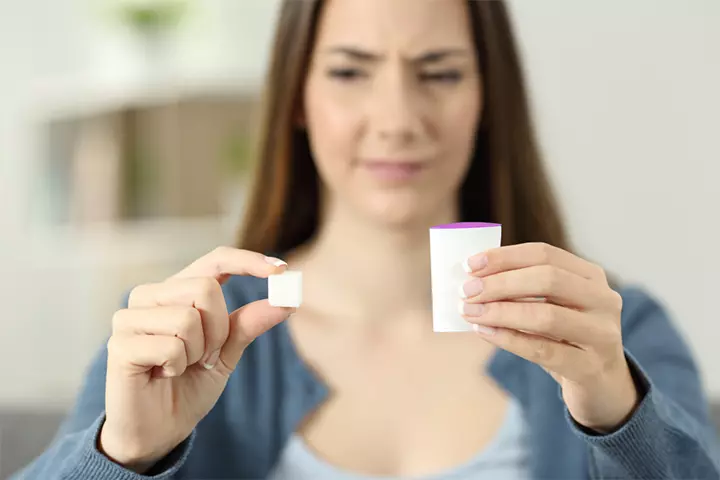
Studies suggest the following potential benefits of chewing gum during pregnancy.
- Improves oral health: According to the data collected by the American College of Obstetricians and Gynecologists (ACOG), xylitol-containing chewing gum has been shown to improve oral health by reducing bacteria in the mouth without posing any risk to pregnant women (3).
- Helps with dry mouth and to ease weird taste: One of the problems women face during pregnancy is a metallic taste and dry mouth. Chewing gum, preferably sugar-free and minty, can help produce saliva and remove the metallic taste (4).
Sharing her tips to deal with a metallic taste in her pregnancy, a blogger named Rachel shares, “I had this lovely pregnancy symptom where my mouth tasted weird all the time, but especially after eating. That sentence does not adequately communicate how incredibly disgusting and frustrating this was. If anyone else is suffering through weird pregnancy mouth, I can say that I finally figured out that eating protein (mostly cheese sticks, in my case) didn’t make it any worse, but any kind of carbs, especially sugar, was a nightmare. Also, chewing minty gum helped a little. I ended up eating zero sugar for two thirds of my pregnancy because of this (so at least I had one healthy habit) (i).”
- Eases acid reflux: Heartburn and acid reflux are common conditions during pregnancy. However, chewing gum after meals can help produce more saliva, which can further reduce the symptoms of reflux in pregnant women (5).
- Alleviates nausea and vomiting: Chewing gums, especially those containing mint or ginger, during pregnancy is recommended as it can relieve nausea and vomiting (6). A study also suggests that chewing gums may help prevent postoperative nausea and vomiting (PONV) after a cesarean delivery; however, the results were inconclusive (7).
- Reduces risk of preterm birth and low birth weight (LBW) in babies: Several studies suggest a direct association between preterm birth and maternal oral health. It was found that the risk for preterm birth and low-birthweight delivery increases by two- to threefold in pregnant women with periodontal disease (8). A study in Malawi among 10,000 pregnant women showed that chewing gum containing xylitol can significantly decrease the risk of preterm birth by improving maternal oral health (9).
Dr. Greg Valentine, associate professor of pediatrics at the University of Washington School of Medicine and the lead author of the Malawi study says, “It surprised us all that such a simple intervention could have such a dramatic effect. A simple intervention like chewing gum helps overcome those issues (preterm birth and LBW) by improving oral health in a more accessible manner (8).”
- Nicotine gum helps pregnant smokers to quit smoking: Studies suggest that about 12% of women smoke even during pregnancy. Thus, it may be safe to continue consuming nicotine gum when pregnant as it may help reduce smoking rates and improve perinatal outcomes (10). A study showed an increased neonatal birth weight and reduced preterm birth risk in pregnant women who underwent nicotine gum therapy (11). However, make sure to consult your healthcare provider before having nicotine gums. Do not pick nicotine gums if you have successfully quit smoking or have always been a non-smoker.
Side Effects Of Chewing Gum During Pregnancy
Moderate consumption of chewing gums during pregnancy is generally considered safe. However, some side effects may occur, especially if you have chewing gums in excess (12).
- Excess chewing of gums may lead to temporomandibular disorders, causing headaches, jaw pain, and even tooth fractures.
- Chewing gums with added natural sugars may increase the risk of gestational diabetes, especially if you have a high-risk pregnancy (13).
- The added sugars in chewing gums can also lead to tooth decay if consumed in excess.
- Since chewing gum might lead to aerophagia, i.e., swallowing too much air, avoid overconsumption as it may cause bloating and gas accumulation in the stomach (14).
- Excess consumption of sugar-free gums with sorbitol, a sugar alcohol, may increase the risk of cramps and diarrhea (15).
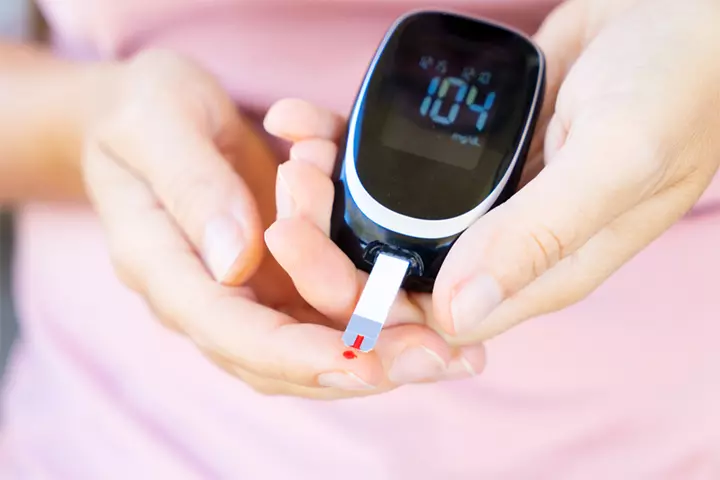
 Point to consider
Point to considerSweeteners In Chewing Gums
Chewing gums contain sweeteners to enhance their taste. Sweeteners for chewing gums can come from various sources and can generally be categorized as follows (1) (24) (25).
- Nutritive natural sweeteners: These include glucose, fructose, and sucrose, which are natural sugars derived from plant-based products such as cane sugar, plant syrups, and fruit extracts. They contain substantial calories and are hence considered nutritive.
- Non-nutritive artificial sweeteners: Examples include aspartame, sucralose, and stevia. They contain very few to almost zero calories and hence are considered non-nutritive. Artificial sweeteners are synthetically manufactured and can be derived from natural sugars.
- Nutritive artificial sweeteners: Examples include various polyols, also referred to as sugar alcohols, such as xylitol and sorbitol. These contain more calories than non-nutritive artificial sweeteners and hence are considered nutritive. Nevertheless, they have significantly fewer calories than nutritive natural sweeteners.
Natural nutritive sweeteners are safe for pregnant women but provide significant calories, which can be a concern, especially if the woman has existing problems, such as gestational diabetes. Nutritive and non-nutritive artificial sweeteners provide fewer calories, but since they are chemically derived, one has to pick the safe ones. The subsequent sections provide more information about safe and unsafe sweeteners in chewing gums.
Chewing Gums That Are Safe During Pregnancy
Moderate consumption of chewing gums containing the following sweeteners is considered safe (2) (16).
- Aspartame
- Sucralose
- Stevia
- Polyols, also referred to as sugar alcohols, such as xylitol and sorbitol
- Glucose, fructose, and sucrose from natural sources such as corn syrup, cane sugar, and fruits
Chewing Gums That Are Unsafe During Pregnancy
According to the American Pregnancy Association (APA), certain artificial sweeteners are unsafe for pregnant women. Thus, avoid eating chewing gums that contain the following artificial sweeteners (2) (16).
- Saccharin, as it can cross the placenta and remain in the fetus
- Cyclamate, as it is banned in the US and has insufficient safety data
- Neotame, because of its lack of safety evidence in pregnancy
- Acesulfame potassium, as it can cross the placenta
You should also avoid chewing gums that contain harmful additives, including (17):
- Titanium dioxide
- Synthetic food dyes, such as Red Dye No. 3
Precautions To Take While Chewing Gum In Pregnancy
Besides checking the ingredients present in the chewing gum and being mindful of any dental problems, observe the following precautions.
- Limit chewing gums to a short duration and preferably after meals
- Opt for gums from well-known brands
- Stick to natural or organic gums
- Prefer chewing gums with no colors or natural colors
- Reduce chewing gum duration and frequency if you observe clicking sounds from your jaw often
- Stop chewing gum if it gives you jaw pain or headache
Frequently Asked Questions
1. Can I chew gum while in labor?
A randomized controlled trial published in BMC Pregnancy and Childbirth showed that chewing gums or mints during labor can help manage anxiety, stress, and pain in the first stage of labor (22). However, it is recommended to consult your prenatal care provider first.
2. Can chewing gum during pregnancy help with heartburn?
A research study reported that chewing sugar-free gum for about 30 minutes after a meal might help alleviate heartburn or related symptoms, such as nausea, by increasing the swallowing frequency (18) (21). Dr. Purdy opines, “Some studies have shown that chewing gum for a brief amount of time may have positive impacts on reflux. However, not every pregnant person experiences reflux, and not everyone who chews gum will have an improvement in their reflux. Therefore, it is important to run everything by your obstetrician before you decide to use it as an option.”
3. What happens if you accidentally swallow gum while pregnant?
Swallowed gum is not digested by the stomach, yet it does not stay in the gastrointestinal tract and passes out intact in stool. It is not known to cause any digestive troubles. In rare cases, swallowing too many chewing gums at once or frequently may cause them to block intestines or cause constipation (23). Thus, you must avoid swallowing chewing gums deliberately and dispose of the gum in a trash can or dustbin.
You may use chewing gum during your pregnancy, considering the nutritional value and calories. Sometimes, the sugar-free labeled gums can also give you some extra calories. There are also non-nutritive chewing gums available that do not contain calories. You may avoid chewing gums with nutritive artificial sweeteners or normal sugar if you risk diabetes or insulin resistance in pregnancy. Some artificial sweeteners, including saccharin and cyclamate, are not good for maternal nutrition. Always read labels before purchasing and seek doctors’ opinions on the use of chewing gums to prevent any adverse effects on maternal health.
Infographic: Safe And Unsafe Chewing Gum Artificial Sweeteners
Pregnant women may crave chewing gums to ease their nausea. However, while chewing gums may be considerably safe, it is important to check the label for information on the ingredients, as some of these artificial sweeteners may be harmful. The infographic below contains a list of some safe and unsafe artificial sweeteners and additives of chewing gum you should know.
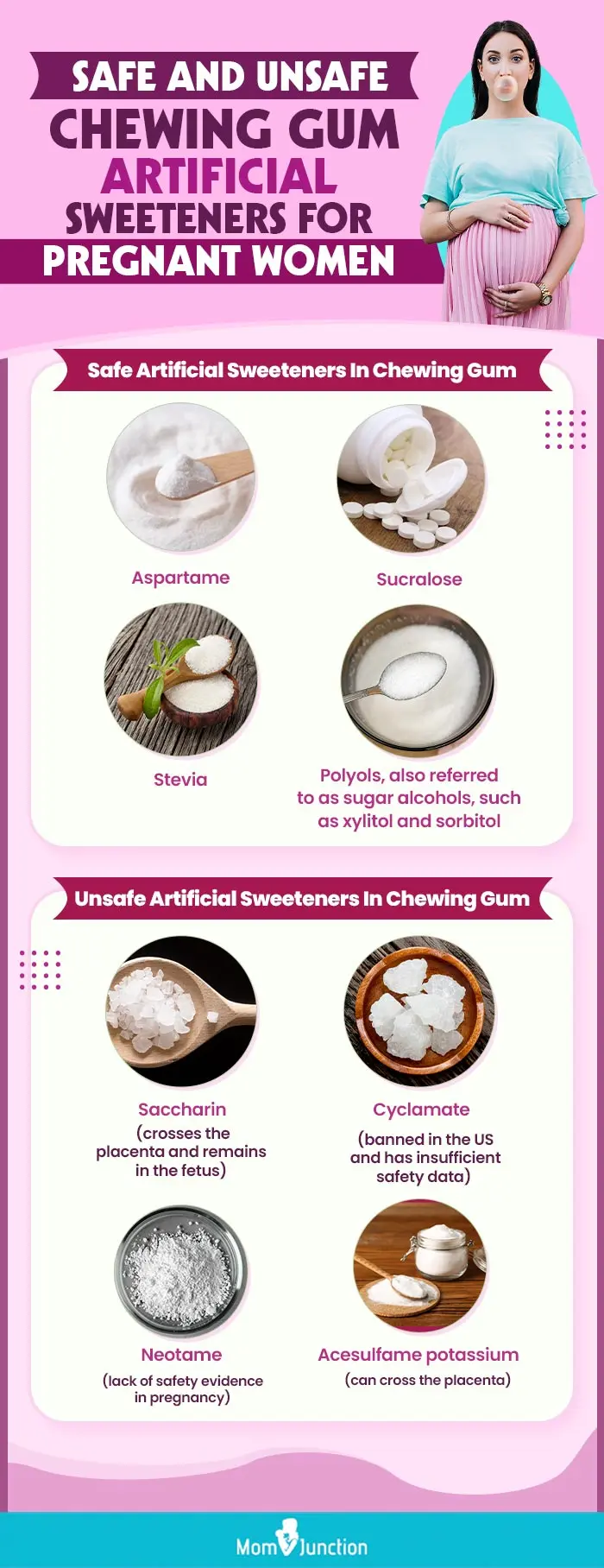
Illustration: Momjunction Design Team
Illustration: Chewing Gum While Pregnant - Is It Safe?
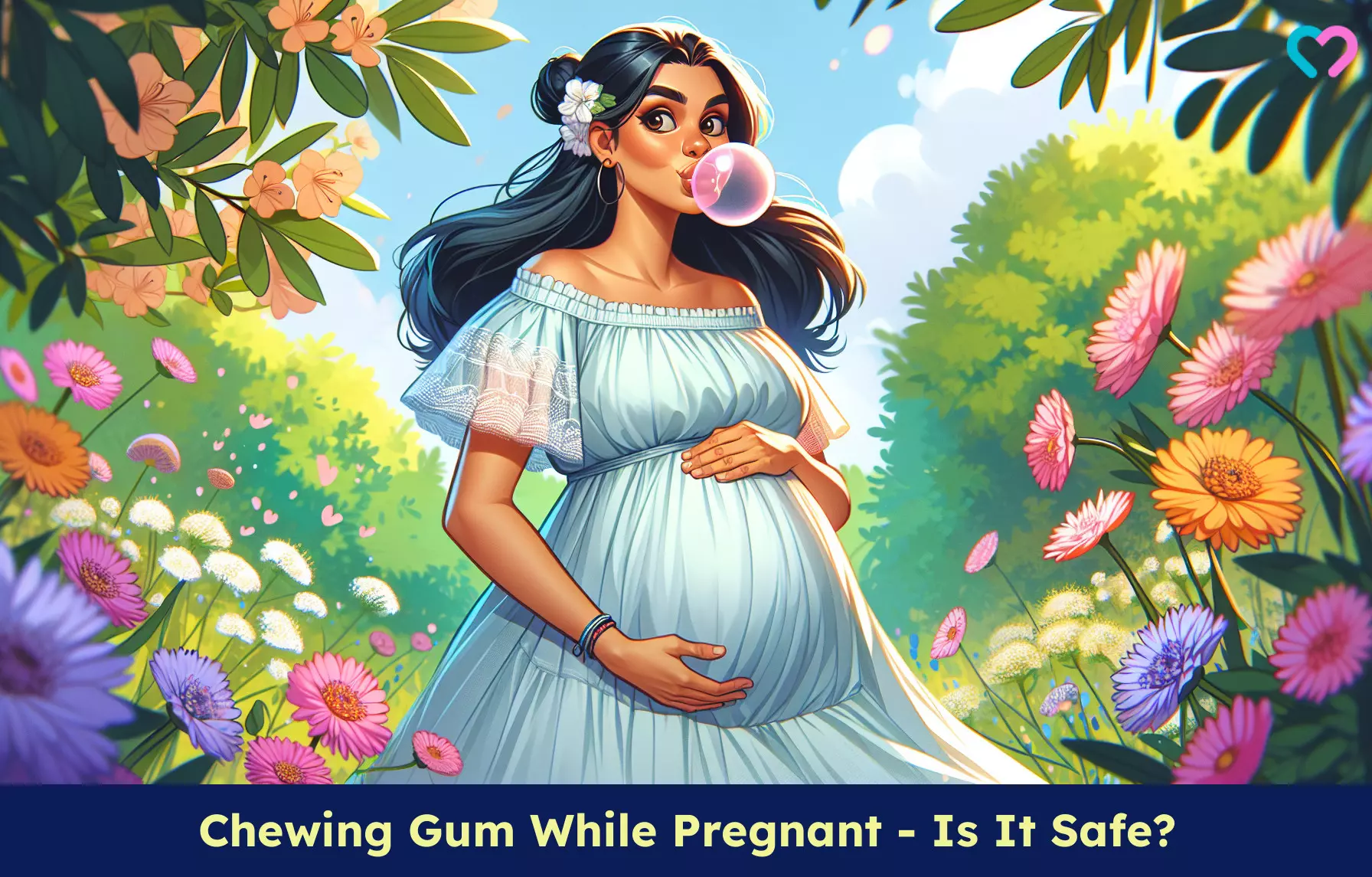
Image: Dall·E/MomJunction Design Team
Are you wondering if chewing gum is safe during pregnancy and what would happen if you swallowed it? Find out in this video, where we discuss the safety and potential risks of gum while pregnant.
Personal Experience: Source
MomJunction articles include first-hand experiences to provide you with better insights through real-life narratives. Here are the sources of personal accounts referenced in this article.
i. The giant pregnancy post;
https://heart-of-light.blogspot.com/2018/07/the-giant-pregnancy-post.html
References
- Sweeteners: Nutritive & Non-Nutritive (SP 50-935).
https://extension.oregonstate.edu/food/preservation/sweeteners-nutritive-non-nutritive-sp-50-935 - Artificial Sweeteners and Pregnancy.
https://americanpregnancy.org/healthy-pregnancy/is-it-safe/artificial-sweeteners-and-pregnancy/ - Oral Health Care During Pregnancy and Through the Lifespan.
https://www.acog.org/clinical/clinical-guidance/committee-opinion/articles/2013/08/oral-health-care-during-pregnancy-and-through-the-lifespan - Common Causes for a Metallic Taste in Your Mouth.
https://health.clevelandclinic.org/common-causes-for-metallic-taste-in-your-mouth - Nausea and vomiting in pregnancy.
https://aci.health.nsw.gov.au/networks/eci/clinical/ed-factsheets/nausea-and-vomiting-in-pregnancy - Morning Sickness: Nausea and Vomiting of Pregnancy.
https://www.acog.org/womens-health/faqs/morning-sickness-nausea-and-vomiting-of-pregnancy - Ross Bowe et al.; (2022); Chewing Gum for Prevention of Nausea and Vomiting After Elective Caesarean Section: a Pilot Randomised Controlled Trial.
https://pubmed.ncbi.nlm.nih.gov/36404985/ - Chewing xylitol gum linked to decrease in preterm birth.
https://newsroom.uw.edu/news-releases/chewing-xylitol-gum-linked-to-decrease-in-preterm-birth - Kjersti M. Aagaard et al.; (2022); LB 1: PPaX: Cluster randomized trial of xylitol chewing gum on prevention of preterm birth in Malawi.
https://www.ajog.org/article/S0002-9378(21)02658-2/fulltext - Cheryl Oncken et al.; (2009); Nicotine Gum for Pregnant Smokers.
https://pmc.ncbi.nlm.nih.gov/articles/PMC2630492/ - María Morales-Suárez-Varela et al.; (2022); Safety of Nicotine Replacement Therapy during Pregnancy: A Narrative Review.
https://pubmed.ncbi.nlm.nih.gov/36612572/ - Is Chewing Gum Bad for You?
https://health.clevelandclinic.org/is-chewing-gum-bad-for-you - Gestational Diabetes.
https://www.cdc.gov/diabetes/about/gestational-diabetes.html - Aerophagia.
https://my.clevelandclinic.org/health/diseases/aerophagia - Do sugar-free candy and gum give you gas? Researchers think they know why.
https://health.ucdavis.edu/news/headlines/do-sugar-free-candy-and-gum-give-you-gas-researchers-think-they-know-why/2024/02 - Eliza Pope et al. (2014); Sugar substitutes during pregnancy.
https://pmc.ncbi.nlm.nih.gov/articles/PMC4229159/ - Sticky situation: Harmful food chemicals in chewing gum.
https://www.ewg.org/news-insights/news/2023/07/sticky-situation-harmful-food-chemicals-chewing-gum - R Moazzez et al. (2005); The effect of chewing sugar-free gum on gastro-esophageal reflux.
https://pubmed.ncbi.nlm.nih.gov/16246942/ - Marion M Hetherington and Martin F Regan; (2011); Effects of chewing gum on short-term appetite regulation in moderately restrained eaters.
https://pubmed.ncbi.nlm.nih.gov/21718732/ - Belching Bloating and Flatulence Overview.
https://gi.org/topics/belching-bloating-and-flatulence/ - Chewing Gum Containing Vitamin-c to Treat Emesis Gravidarum.
https://clinicaltrials.gov/study/NCT04284696 - Atefeh Ebrahimian et al.; (2022); Comparison of the effectiveness of virtual reality and chewing mint gum on labor pain and anxiety: a randomized controlled trial.
https://bmcpregnancychildbirth.biomedcentral.com/articles/10.1186/s12884-021-04359-3 - Swallowing gum: Is it harmful?
https://www.mayoclinic.org/diseases-conditions/indigestion/expert-answers/digestive-system/faq-20058446 - Are certain types of sugars healthier than others?
https://www.health.harvard.edu/blog/are-certain-types-of-sugars-healthier-than-others-2019052916699 - Food Fact: Sweeteners.
https://www.uhsussex.nhs.uk/resources/food-fact-sweeteners/
Community Experiences
Join the conversation and become a part of our nurturing community! Share your stories, experiences, and insights to connect with fellow parents.
Read full bio of Kay Lakka
- Dr. Laura Purdy is a board-certified Family Medicine Physician with over a decade of experience. Previously a performing pianist, she later did her graduation in Psychology (Magna Cum Laude) from Ball State University and attended medical school at the Uniformed Services University of the Health Sciences. After graduating with a family medicine residency at Georgia’s Martin Army Hospital, she joined as a US Army physician.
 Dr. Laura Purdy is a board-certified Family Medicine Physician with over a decade of experience. Previously a performing pianist, she later did her graduation in Psychology (Magna Cum Laude) from Ball State University and attended medical school at the Uniformed Services University of the Health Sciences. After graduating with a family medicine residency at Georgia’s Martin Army Hospital, she joined as a US Army physician.
Dr. Laura Purdy is a board-certified Family Medicine Physician with over a decade of experience. Previously a performing pianist, she later did her graduation in Psychology (Magna Cum Laude) from Ball State University and attended medical school at the Uniformed Services University of the Health Sciences. After graduating with a family medicine residency at Georgia’s Martin Army Hospital, she joined as a US Army physician.
Read full bio of Reshmi Das
Read full bio of Swati Patwal
Read full bio of Lorraine Teron






 Did you know?
Did you know?



